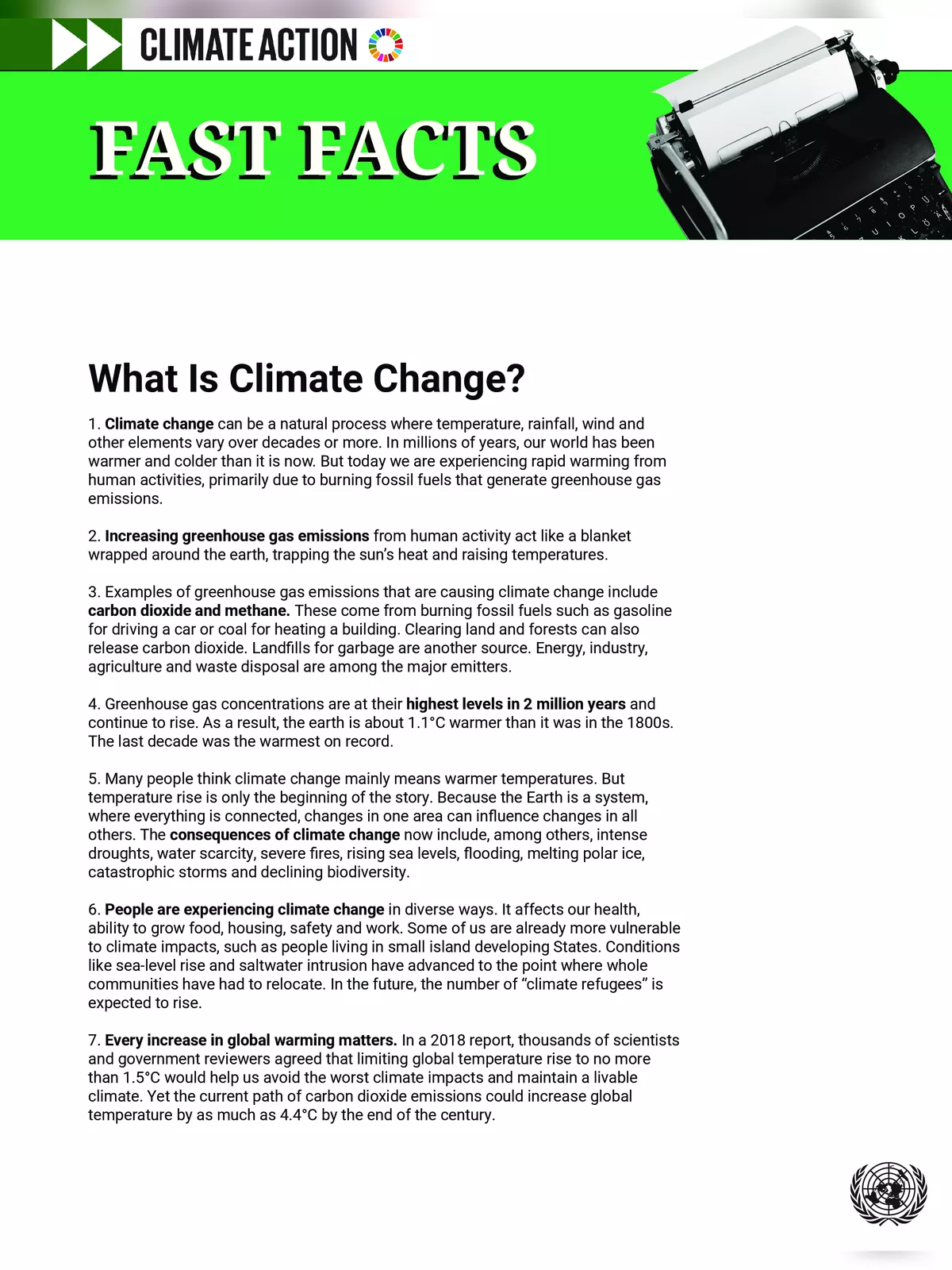Climate Change Definition - Summary
Climate change is a serious issue that affects our planet today. It can be a natural process where temperature, rainfall, wind, and other elements change over many years. For millions of years, our world has gone through cycles of warming and cooling. However, right now, we are facing rapid warming caused by human activities, mostly due to burning fossil fuels, which release greenhouse gas emissions.
Understanding Climate Change
Climate change refers to long-term changes in temperature and weather patterns. While some changes can occur naturally, human activities have become the major cause of climate change since the 1800s. The burning of fossil fuels, such as coal, oil, and gas, leads to the production of gases that trap heat in our atmosphere.
Climate Change Definition
- Increasing greenhouse gas emissions from human activity form a layer around the Earth, similar to a blanket that traps the sun’s heat and raises temperatures.
- People are experiencing climate change in many ways. It affects our health, ability to grow food, housing, safety, and jobs. Some communities, like those in small island developing States, are already more vulnerable to climate impacts. They face challenges such as sea-level rise and saltwater intrusion, leading to entire communities needing to relocate. In the future, the number of “climate refugees” is expected to rise.
- Every increase in global warming is significant. A 2018 report noted that thousands of scientists and government reviewers agreed that limiting the global temperature rise to no more than 1.5°C would help us avoid the worst climate impacts and maintain a livable environment.
You can download the Climate Change Definition PDF using the link below. Don’t miss the chance to learn more!
